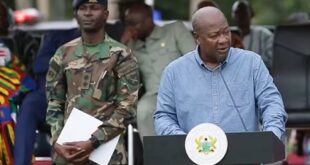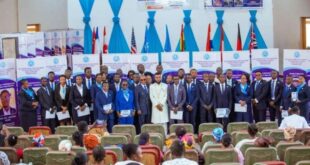The Scholarship Secretariat has denied allegations of neglect by some of its beneficiaries in India.
Director of the Secretariat, Kingsley Agyemang, in a phone interview with GhanaWeb, said though this is the first time the secretariat was sending students to India, students on scholarship abroad have never been neglected under his watch.
“Students abroad have never been neglected… all students abroad even write to eulogise the secretariat for the unmatched service delivery that we give them,” he said.
According to Mr Agyemang the students were asked to open local accounts in India because the charges the Secretariat was getting from Fidelity Bank was too much.
But due to the coronavirus outbreak, students were not able to open the accounts even though the money was sent to India in February.
“The mission is in serious discussion with the student leadership and there’s this common agreement that they will move from Delhi because things are not normal to go and pay them their stipends over the table.”
He further debunked claims by the students that the Secretariat didn’t do due diligence before sending them off to the Godavari Institute to Engineering and Technology.
Mr Agyemang said “we did due diligence. We even wrote to National Accreditation Board, Ghana, to confirm if the school was suitable to run the programmes which they confirmed. Again, the High Commission in India also confirmed the school’s capability so that issue cannot be proved.”
According to him, the Secretariat gave the school one month to improve some facilities after the students complained about conditions in the school. However, upon further complaints from the students after the one-month period ended, the students were moved to a different school.
“We gave them a one-month notice to improve on certain facilities. When the students again came back to us that the facilities haven’t been able to improve as they expect then we moved them.”
He said the Lovely Professional University (LPU) where the students were moved to, agreed to take the students on at no fees so the moving of students did not cost the government anything.
He added that the stipend given to the students was to sustain them since the agreement with India included food and accommodation.
“The Indian agreement was such that the students were being fed three times a day and they were not paying for accommodation so what we needed to give them was something just to sustain them,” Mr Agyemang stated.
Mr Agyemang said he will contact the High Commissioner in India to quickly ensure that the students are paid the stipends for the first quarter of the year as soon as possible.
 Home Of Ghana News Ghana News, Entertainment And More
Home Of Ghana News Ghana News, Entertainment And More





